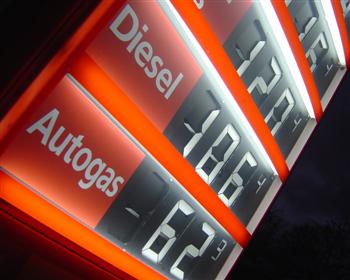European Makers See Diesel Ending Sooner Than Planned
 The Volkswagen diesel emissions scandal will have lasting consequences, not just for the German automaker itself but for the entire global auto industry. It may also lead to a serious contraction of the diesel market worldwide—including in the very near future, the phase-out of a number of current European-market diesel models.
The Volkswagen diesel emissions scandal will have lasting consequences, not just for the German automaker itself but for the entire global auto industry. It may also lead to a serious contraction of the diesel market worldwide—including in the very near future, the phase-out of a number of current European-market diesel models.
The issue has been pushed to the forefront this year by the allegations (and admissions) that through a software-based "defeat device"—now alleged to be in a wider range of models than anticipated before—Volkswagen has been able to trick regulators in Europe, the U.S., and elsewhere. The device causes vehicles to meet emissions targets during a specific test-mode cycle, while during real-world driving these models produce at the tailpipe up to 40 times the levels of nitrogen oxides (NOx) permitted.
But the issue isn’t limited to Volkswagen vehicles. The European Commission has said that its data shows a range of currently produced Euro 6 diesel models now exceed NOx limits by four to five times in real-world driving conditions, without the trickery.
The European Automobile Manufacturers' Association (ACEA), a group of fifteen manufacturers that have significant operations in the EU, released a statement noting that the move will bring some serious economic implications because, "as a direct consequence, a substantial number of diesel models will have to be phased out earlier than planned."
That leaves any growth opportunities for diesel very slim at present, argued Nissan Chairman and CEO Carlos Ghosn. "There are certain things within common sense—that this scandal is not going to make diesel more popular in the United States; this scandal is not going to make diesel more popular in Japan. So for the countries that don’t have diesel, I think if you come and say that you have a competitive advantage, a clean diesel, I think it’s not going to be a brilliant campaign." Ghosn said that the diesel market in Europe is going to depend a lot on the new standard. "Which means that we have to be ready for the decline of diesel no matter what—the decline of diesel in Europe."
The U.S. EPA hasn’t weighed in on the matter yet with any change in measurement methodology; although both it and the California Air Resources Board are currently testing a wider range of diesels and driving conditions.
As for Europe, the EU is moving fast to tighten requirements on diesel tailpipe emissions. In early-November, a committee of the European Commission met with member states to approve new rules that will require real driving emissions (RDE) tests for diesel-powered passenger vehicles. Those new rules are slated to be adopted by September 1, 2017, and are anticipated to help close the gap between laboratory and real-world driving. They include a "not to exceed limit" under worst-case-scenario conditions.
That limit, also called a "discrepancy factor," will be set at a maximum of 2.1 times the Euro 6 test limit, while it will tighten to 1.5 times the test limit beginning in January 2021.
 The Volkswagen diesel emissions scandal will have lasting consequences, not just for the German automaker itself but for the entire global auto industry. It may also lead to a serious contraction of the diesel market worldwide—including in the very near future, the phase-out of a number of current European-market diesel models.
The Volkswagen diesel emissions scandal will have lasting consequences, not just for the German automaker itself but for the entire global auto industry. It may also lead to a serious contraction of the diesel market worldwide—including in the very near future, the phase-out of a number of current European-market diesel models.